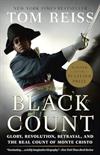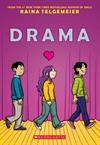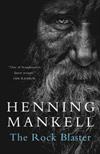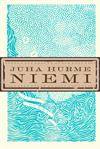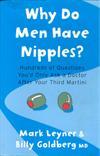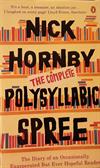
Samurai Shortstop
Registered by  GoryDetails
GoryDetails of Nashua, New Hampshire USA on 5/8/2011
of Nashua, New Hampshire USA on 5/8/2011
 This Book is Currently in the Wild!
This Book is Currently in the Wild!
 GoryDetails
GoryDetails of Nashua, New Hampshire USA on 5/8/2011
of Nashua, New Hampshire USA on 5/8/2011 This Book is Currently in the Wild!
This Book is Currently in the Wild!
5 journalers for this copy...
I read this recently and liked it so much that I hunted up a second copy at the Book Cellar.
I really loved this book! From the dramatic opening line ("Toyo watched carefully as his uncle prepared to kill himself") I knew I was in for something unusual. The story's set in 1890 Tokyo, at a time when the emperor has decided to force the country into adopting Western ways in hopes of improving Japan's position in the world, so many of the traditional ways are not only being discouraged but, in some cases, outlawed. Toyo's uncle was among those who opposed the change, and his ritual suicide (seppuku) is his choice over being jailed or executed as a rebel. Much of the story centers on Toyo's attempts to understand his uncle's reasoning and to cope with his own anger, sorrow, and horror.
From that stark, deadly opening, the story shifts into Toyo's experiences at his new school, which include what seems to modern eyes an over-the-top amount of hazing, sufficiently frightening and violent to leave its victims suffering sleep-deprivation and, in some cases, actual injuries. (I give the author full marks here for managing to keep Toyo's views in line with a boy of his age brought up in his class and culture, while allowing him just enough questioning of authority to make him sympathetic to Western eyes.)
From Toyo's viewpoint, the main advantage to getting through the hazing is that now he's considered eligible to join the school's baseball team (he plays shortstop, hence the title). The most surprising element of this story for me was the early popularity of baseball in Japan; I had to look it up to make myself believe that a Japanese high school in 1890 would actually be fielding a baseball team at all, never mind being quite manic about it! But it turns out to be true - as do some of the descriptions of the period rules, and of games played. Very, very cool!
In addition to his baseball and his classes, Toyo has something else to learn; his father has decided to teach him the way of bushido, by way of explaining the reasons for his uncle's death (and, as his father suggests, for his own). There are some great scenes here between a father and son who both desperately want to be able to communicate but who are so disconnected that it doesn't seem possible. Toyo agrees to learn, but "was there any way to learn the way of the warrior and still save his father's life?"
I was charmed at the way the bushido lessons (which began with zen meditation training, much to Toyo's surprise, but which eventually included grueling, agonizing stints at sword-forms and actual combat with his father) fit in with the baseball training - and was even more delighted when Toyo himself began to realize this and make use of it.
Despite the grim opening and the often-brutal hazing and training, there's a lot of humor in the story, many new friendships for Toyo, and some wonderfully triumphant moments (on the ball field and off). Toyo himself was a very sympathetic character, and he discovers that many of his schoolmates - and his father - have more sides to them than he could see at first. [His father learns a few things as well before the end of the story!]
I can imagine some interesting discussions based on this book, as it manages to present certain types of group-think and classism as a positive thing, while also showing the dark side of too-stringent prejudice - and it uses baseball as the analogue, since the game requires sacrificing one's own goals for those of the team, yet also rewards individual effort on occasion. [The use of zen meditation as a baseball training exercise also charmed me - and when I saw it in use in the lovely baseball-themed anime Big Windup I thought of this book and beamed!]
The story climaxes with a game between Toyo's high school team and a group of American players (all adults and some professional players), with Japanese/American relations on the line - and what a game it turns out to be!
The author's notes at the end of the book are worth reading; the book's origins are explained, and the author lets us know which incidents from the story were based in fact (many more than I would have guessed!). There's a bibliography as well, a nice touch.
To close, I'll quote a haiku from the front of the book, written by Japanese baseball player and poet Shiki Masaoka in 1890:
"The secret to catching a ball
Lies with the willow
Swaying in the wind."
[I've enjoyed other Gratz books as well, including The Brooklyn Nine, a fictionalized baseball-through-the-years novel, and Fantasy Baseball, a story about a boy who finds himself playing baseball with characters from fiction.]
I really loved this book! From the dramatic opening line ("Toyo watched carefully as his uncle prepared to kill himself") I knew I was in for something unusual. The story's set in 1890 Tokyo, at a time when the emperor has decided to force the country into adopting Western ways in hopes of improving Japan's position in the world, so many of the traditional ways are not only being discouraged but, in some cases, outlawed. Toyo's uncle was among those who opposed the change, and his ritual suicide (seppuku) is his choice over being jailed or executed as a rebel. Much of the story centers on Toyo's attempts to understand his uncle's reasoning and to cope with his own anger, sorrow, and horror.
From that stark, deadly opening, the story shifts into Toyo's experiences at his new school, which include what seems to modern eyes an over-the-top amount of hazing, sufficiently frightening and violent to leave its victims suffering sleep-deprivation and, in some cases, actual injuries. (I give the author full marks here for managing to keep Toyo's views in line with a boy of his age brought up in his class and culture, while allowing him just enough questioning of authority to make him sympathetic to Western eyes.)
From Toyo's viewpoint, the main advantage to getting through the hazing is that now he's considered eligible to join the school's baseball team (he plays shortstop, hence the title). The most surprising element of this story for me was the early popularity of baseball in Japan; I had to look it up to make myself believe that a Japanese high school in 1890 would actually be fielding a baseball team at all, never mind being quite manic about it! But it turns out to be true - as do some of the descriptions of the period rules, and of games played. Very, very cool!
In addition to his baseball and his classes, Toyo has something else to learn; his father has decided to teach him the way of bushido, by way of explaining the reasons for his uncle's death (and, as his father suggests, for his own). There are some great scenes here between a father and son who both desperately want to be able to communicate but who are so disconnected that it doesn't seem possible. Toyo agrees to learn, but "was there any way to learn the way of the warrior and still save his father's life?"
I was charmed at the way the bushido lessons (which began with zen meditation training, much to Toyo's surprise, but which eventually included grueling, agonizing stints at sword-forms and actual combat with his father) fit in with the baseball training - and was even more delighted when Toyo himself began to realize this and make use of it.
Despite the grim opening and the often-brutal hazing and training, there's a lot of humor in the story, many new friendships for Toyo, and some wonderfully triumphant moments (on the ball field and off). Toyo himself was a very sympathetic character, and he discovers that many of his schoolmates - and his father - have more sides to them than he could see at first. [His father learns a few things as well before the end of the story!]
I can imagine some interesting discussions based on this book, as it manages to present certain types of group-think and classism as a positive thing, while also showing the dark side of too-stringent prejudice - and it uses baseball as the analogue, since the game requires sacrificing one's own goals for those of the team, yet also rewards individual effort on occasion. [The use of zen meditation as a baseball training exercise also charmed me - and when I saw it in use in the lovely baseball-themed anime Big Windup I thought of this book and beamed!]
The story climaxes with a game between Toyo's high school team and a group of American players (all adults and some professional players), with Japanese/American relations on the line - and what a game it turns out to be!
The author's notes at the end of the book are worth reading; the book's origins are explained, and the author lets us know which incidents from the story were based in fact (many more than I would have guessed!). There's a bibliography as well, a nice touch.
To close, I'll quote a haiku from the front of the book, written by Japanese baseball player and poet Shiki Masaoka in 1890:
"The secret to catching a ball
Lies with the willow
Swaying in the wind."
[I've enjoyed other Gratz books as well, including The Brooklyn Nine, a fictionalized baseball-through-the-years novel, and Fantasy Baseball, a story about a boy who finds himself playing baseball with characters from fiction.]
I'm offering this for a book ray. [See the forum thread here.]
The book is a trade paperback weighing about 10 ounces, something to keep in mind when estimating postage costs. [US participants can get postage estimates at the USPS site here ( http://www.usps.com ).]
Bookray instructions:
When you receive the book, please journal it, and PM the next person in line for their address so you'll have it ready when you've finished the book.
When you're ready to pass the book along, please add your comments about the book and indicate where you're sending it, either through a journal entry or through the controlled-release-note option using your country/state/city as the location. If you find that you're having problems contacting the next person in line, or don't think you can manage to mail the book as originally agreed, please let me know; I'll be glad to try to work something out.
Participants, in mailing order:
JudySlump612 [MN - USA]
DrSlump612 [MN - USA]
hyphen8 [HI - USA]
PJLBewdy [Australia]
RonOren [UK]
The book is a trade paperback weighing about 10 ounces, something to keep in mind when estimating postage costs. [US participants can get postage estimates at the USPS site here ( http://www.usps.com ).]
Bookray instructions:
When you receive the book, please journal it, and PM the next person in line for their address so you'll have it ready when you've finished the book.
Note: even if you've sent books to that person before, please PM them before mailing this one, to confirm that the address is correct and that they're able to take on a bookray book at this time.Try and read the book promptly - ideally, within one month of receiving it. (If you expect to take longer, you can request to be put at the end of the list. If you find you're swamped with other books when the person before you contacts you about the book, you can ask to be skipped, and then let me know whether you'd like to be moved down the list or dropped entirely. If you receive the book and find it's taking longer than you'd planned to get through it, I'd appreciate an update in its journal entries or on your profile, just to let me and the other participants know you haven't forgotten it.)
When you're ready to pass the book along, please add your comments about the book and indicate where you're sending it, either through a journal entry or through the controlled-release-note option using your country/state/city as the location. If you find that you're having problems contacting the next person in line, or don't think you can manage to mail the book as originally agreed, please let me know; I'll be glad to try to work something out.
Participants, in mailing order:
JudySlump612 [MN - USA]
DrSlump612 [MN - USA]
hyphen8 [HI - USA]
PJLBewdy [Australia]
RonOren [UK]
The book's on its way to Minnesota to kick off the book ray; hope everyone enjoys it!
Arrived safely here today. Thanks, Gory!
DrSlump & I both enjoyed this. He's already read enough manga about high school baseball that he wasn't as impressed by it as I was, but he agreed that this did a great job of showing why the game fits so neatly into the Japanese national character: the contemplative periods of waiting between bursts of action, and of course, the individual players submerging themselves into the good of the team.
There was quite a lot going on here, and I think all the parts worked well, separately as well as reinforcing or complicating other parts. For instance, we've all read lots of coming-of-age, conflict-with-older-generation's-culture stories, but in my memory they've all been about children of immigrants. I can't imagine what it would be like to live in a country or time in which the most revered (only?) authority unilaterally tries to change the whole class structure. Toyo was walking a tightrope between all the ways he could fail either his father or the new order. And on top of that, he had to study, practice baseball, and run the cafeteria.
Gory's right - the author's notes at the end are real eye-openers. I enjoyed reading the story, and I learned a little more about Japan's history. Thanks for sharing this bookring!
There was quite a lot going on here, and I think all the parts worked well, separately as well as reinforcing or complicating other parts. For instance, we've all read lots of coming-of-age, conflict-with-older-generation's-culture stories, but in my memory they've all been about children of immigrants. I can't imagine what it would be like to live in a country or time in which the most revered (only?) authority unilaterally tries to change the whole class structure. Toyo was walking a tightrope between all the ways he could fail either his father or the new order. And on top of that, he had to study, practice baseball, and run the cafeteria.
Gory's right - the author's notes at the end are real eye-openers. I enjoyed reading the story, and I learned a little more about Japan's history. Thanks for sharing this bookring!
Journal Entry 6 by JudySlump612 at By mail, A Bookring -- Controlled Releases on Monday, October 17, 2011
Released 12 yrs ago (10/17/2011 UTC) at By mail, A Bookring -- Controlled Releases
CONTROLLED RELEASE NOTES:
Media mail to hyphen8
Received today and this definitely looks interesting; thanks for including me. I'm halfway through my previous ring/ray book, so this one will be next.
Thanks for sharing this - it was fascinating. I'd never thought about the Japanese affinity for baseball quite that way before, but the way it's explained in the story makes a lot of sense.
Many parts of Japan are quite "Westernized" today, but it is still a distinctive separate culture and at times quite different from what I'm used to as an American. Many of the details in the story rang true. The period of the story was a very turbulent time in Japan, and the adjustment must have been difficult for many people. I thought it interesting that Toyo drew exactly the opposite lesson than his father intended from his visit to the eta/burakumin neighborhood; unfortunately some of that prejudice apparently still lingers today. (As far as I can tell, my relatives were all merchants, farmers, or fishermen, so neither at the very top or the very bottom.)
I found the tea-scented baseball very amusing, but on the other hand, I couldn't help thinking about how the outside of the dorm must have smelled after all the "rain".
Baseball background: my maternal grandfather (born in Hawaii but his parents were from Japan) helped coach a PAL team to a Pony League championship in 1969 and at least 5 of his 6 grandsons played youth baseball at some point, so I let Mom read this too. I currently have a relative on the other side of the family playing pro ball, most recently with the AA Portland Sea Dogs, where I got to see him play. (Update: he made it to the AAA Pawtucket Red Sox, played a few spring training games with Boston, then retired from baseball in 2013.)
I'll be looking for another copy of this book to pass on to some other readers; meanwhile I've contacted PJLBewdy to ask for an address so I can pass this one on.
Other copies on my BookCrossing shelf: 11659348 • 13904396
Many parts of Japan are quite "Westernized" today, but it is still a distinctive separate culture and at times quite different from what I'm used to as an American. Many of the details in the story rang true. The period of the story was a very turbulent time in Japan, and the adjustment must have been difficult for many people. I thought it interesting that Toyo drew exactly the opposite lesson than his father intended from his visit to the eta/burakumin neighborhood; unfortunately some of that prejudice apparently still lingers today. (As far as I can tell, my relatives were all merchants, farmers, or fishermen, so neither at the very top or the very bottom.)
I found the tea-scented baseball very amusing, but on the other hand, I couldn't help thinking about how the outside of the dorm must have smelled after all the "rain".
Baseball background: my maternal grandfather (born in Hawaii but his parents were from Japan) helped coach a PAL team to a Pony League championship in 1969 and at least 5 of his 6 grandsons played youth baseball at some point, so I let Mom read this too. I currently have a relative on the other side of the family playing pro ball, most recently with the AA Portland Sea Dogs, where I got to see him play. (Update: he made it to the AAA Pawtucket Red Sox, played a few spring training games with Boston, then retired from baseball in 2013.)
I'll be looking for another copy of this book to pass on to some other readers; meanwhile I've contacted PJLBewdy to ask for an address so I can pass this one on.
Other copies on my BookCrossing shelf: 11659348 • 13904396
Toyo is headed south to the next person in line. It's ok, I know that they play baseball there too. :)
I'm counting this book for pinkoeria's E-less challenge.
Free your books - help spread the words!
I'm counting this book for pinkoeria's E-less challenge.
Free your books - help spread the words!
Received today. Thanks for sharing! Hey we have Olympic medals in baseball! (no Gold ones though) I'll look forward to reading this one.
Love the McNally link, Your relative certainly has some ink!
Love the McNally link, Your relative certainly has some ink!
Journal Entry 11 by PJLBewdy at Smiths Lake, New South Wales Australia on Tuesday, December 20, 2011
 What a great little book! I enjoyed the all too short time it took me to read it. Gratz isn't Japanese (he's from Tennessee) but he translates his research into characterisation pretty well. Of course Toyo's class and generation realised their supressed 'samurainess' by annexing and brutalising Manchuria and propelling Japan into an unwinnable war...
What a great little book! I enjoyed the all too short time it took me to read it. Gratz isn't Japanese (he's from Tennessee) but he translates his research into characterisation pretty well. Of course Toyo's class and generation realised their supressed 'samurainess' by annexing and brutalising Manchuria and propelling Japan into an unwinnable war...Great descriptions and blending of drama and food for thought.
Journal Entry 12 by PJLBewdy at Smiths Lake, New South Wales Australia on Tuesday, December 20, 2011
Released 12 yrs ago (12/21/2011 UTC) at Smiths Lake, New South Wales Australia
CONTROLLED RELEASE NOTES:
Off it goes to the UK on the next leg of its travels. Enjoy!
Journal Entry 13 by RonOren at Cambridge, Cambridgeshire United Kingdom on Thursday, December 29, 2011
This just arrived; thanks for sending it through, PJJBewdy. I've got another ring to read, as well as a bookclub-book, so it may take a little while until I get to this one. I'll get back with a journal as soon as I can.
Journal Entry 14 by RonOren at Cambridge, Cambridgeshire United Kingdom on Friday, February 17, 2012
Apologies for the long delay in journalling this - the ring before took quite a bit longer than I expected to read. Once I started on this, I finished it within a day.
I quite enjoyed it the book, but didn't feel it really pushed beyond a boy's adventure. It was just all a little too slick, how everything fell in place for Toyo and his team. For someone who's been thrown into the deep in a place where he doesn't understand any of the rules, Toyo is surprisingly good at not setting a foot wrong.
What I did like, was the tension between the feudal, Shogunate Japan and the modern, Meiji-enforced Japan: I could almost feel Japanese society careening to the outrages of the 1930s.
Although I can't see myself pick this up again, I did enjoy reading it; thanks for the opportunity, GoryDetails! I'll release it somewhere soon, for someone else to enjoy too.
I quite enjoyed it the book, but didn't feel it really pushed beyond a boy's adventure. It was just all a little too slick, how everything fell in place for Toyo and his team. For someone who's been thrown into the deep in a place where he doesn't understand any of the rules, Toyo is surprisingly good at not setting a foot wrong.
What I did like, was the tension between the feudal, Shogunate Japan and the modern, Meiji-enforced Japan: I could almost feel Japanese society careening to the outrages of the 1930s.
Although I can't see myself pick this up again, I did enjoy reading it; thanks for the opportunity, GoryDetails! I'll release it somewhere soon, for someone else to enjoy too.
Journal Entry 15 by RonOren at Tram Depot in Cambridge, Cambridgeshire United Kingdom on Friday, February 17, 2012
Released 12 yrs ago (2/17/2012 UTC) at Tram Depot in Cambridge, Cambridgeshire United Kingdom
WILD RELEASE NOTES:
Will leave the book at a suitably prominent place in the pub; if at all possible, on the bar...
